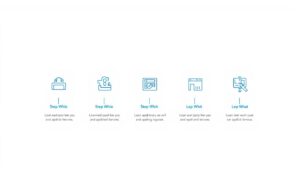Debt is a challenge that many face, and dealing with it can be one of the most stressful experiences in your financial life. When the bills start piling up and the red becomes a constant reality, it’s easy to feel overwhelmed and not know where to start. However, controlling your debts and regaining financial health is not only possible, but also essential to guarantee a more peaceful and secure future. Find out more about how to create a personal budget to maintain financial control. In this comprehensive guide, we’ll explore essential strategies and tips that can help you understand your financial situation, develop an effective action plan, and ultimately break out of the debt cycle. Get ready to take the first steps towards financial freedom and take back control of your life!
As the article progresses, it will be discussed in detail on how to maximize your savings with the best cash back offers.
Understanding Your Financial Situation: Why Are You in Debt?
Understanding your financial situation is key to identifying the root causes of debt. Many people end up in financial trouble without fully realizing how they got there. Common causes of debt include a lack of financial planning, excessive spending, and unexpected events. One major factor is the misuse of credit, where the ease of credit cards and loans leads to a cycle of debt that becomes hard to break. Social pressures and the desire to maintain a certain lifestyle can also contribute to overspending, as people make impulsive financial decisions to gain approval or status, often ignoring the long-term consequences.
Additionally, unexpected events like medical emergencies or job loss can disrupt even the best-laid financial plans, leading to the need for emergency credit or loans to cover bills. Explore more about how to get an emergency loan. This can create a debt snowball effect, making it harder to regain control. It is crucial to have a financial buffer and plan for emergencies to avoid turning short-term crises into long-term debt problems. Recognizing the causes of debt and understanding spending habits are essential in developing a strategy to regain financial control and build a secure future.
See more of these contents that may be relevant:
- Unlock Favorable Loan Terms Today! Get Started Now
- Secure a Low Interest Rate Loan Today!
- Default Rate and How it Affects your Ability to Get Loans in the Future
Financial Organization: The First Step to Getting Out of the Red
Create a Financial Plan
- This means setting priorities and establishing realistic short- and long-term goals. A good practice is to create a monthly budget that limits unnecessary spending and directs resources toward paying off debt. Financial control acts as a map, guiding your decisions and allowing you to track your progress over time.
Cultivate Healthy Spending Habits
- Avoid impulse buying and seek more affordable alternatives for your daily purchases. An effective strategy is the “24-hour waiting” technique before making a non-essential purchase. This time allows you to reflect on whether it’s worth spending the money, reducing the chance of regrets and further debt.
Financial Education
- Learning about finances, investments, and emotional intelligence can make all the difference on your journey to financial stability. Getting out of debt requires discipline and commitment, but with organization and planning, it is entirely achievable. The key is to take the first steps with determination, always focusing on a healthier and more balanced financial future.
Assess Your Financial Reality
- Financial organization is often overlooked, yet it is the essential first step for anyone looking to get out of debt. In personal finance, disorganization can lead to various complications, such as accumulated debt and difficulties in meeting obligations. To reverse this situation, it is crucial to conduct a clear diagnosis of your financial reality. Record your income and expenses, categorizing each item to gain a precise view of where your money is being spent. Find out more about how to obtain a loan to consolidate your debts.
Reducing Expenses: Effective Strategies for Cutting Costs:
Reducing expenses is a common concern, especially during times of economic uncertainty. The good news is that there are several effective strategies that can be implemented to cut costs without compromising quality of life.
Detailed Budgeting
- Listing all income and expenses allows you to identify where money is being allocated and which areas present potential for cuts. By doing so, you can eliminate “unnecessary” expenses and gain more control over your finances.
Price Comparison
- Before making purchases, research different suppliers and platforms to find the best price. Another valuable tip is to replace certain consumption habits. For example, cooking at home instead of dining out is not only more cost-effective but also promotes healthier eating. Adopting generic brands and buying discounted products can also contribute to expense reduction.
Reviewing Unnecessary Contracts and Subscriptions
- Many times, we have streaming services, gym memberships, or even phone plans that we don’t fully utilize. Assessing the real need for these services and canceling them can be a decisive step toward achieving a more balanced financial life. Additionally, adopting sustainable habits, such as using public transportation or bicycles, can reduce fuel costs and vehicle maintenance.
Cultivating a Money-Saving Mindset
- Identifying and setting financial priorities can help direct resources toward what truly matters. Whether it’s building an emergency fund or planning vacations more consciously, small daily changes can make a big difference in the long run. By adopting these strategies, you can not only cut expenses but also cultivate a more sustainable and fulfilling lifestyle.
Debt Renegotiation: How to Negotiate with Creditors and Financial Institutions
Renegotiating debts can provide an effective strategy for regaining financial stability, especially when faced with unforeseen circumstances such as job loss or economic changes. By negotiating with creditors, individuals can secure more favorable terms, including lower interest rates, extended payment deadlines, or even discounts on the total debt. The key to a successful negotiation is fully understanding your financial situation—this includes listing all debts, interest rates, payment deadlines, and terms. With this information, you can determine what you can afford and how much you’re willing to negotiate. Honesty and transparency with creditors about your financial capacity are crucial for building trust and finding a solution that works for both parties.
A crucial factor to consider during debt renegotiation is the impact on your credit score. Maintaining an open line of communication with creditors and ensuring that you honor renegotiated terms can help protect and even improve your credit score over time. If you are successful in negotiating lower interest rates or extending payment deadlines, it could make your payments more manageable and prevent missed payments, which can damage your credit. While some debt renegotiations, such as debt settlements, may affect your credit score, working with creditors to modify your terms in a responsible manner can ultimately demonstrate your commitment to improving your financial situation. Always document the terms of any agreements and continue to monitor your credit score to track progress and avoid further financial setbacks. Check how to improve your credit score in a simple and efficient way.
The Importance of Financial Planning: How to Create an Efficient Budget
Financial planning is an essential tool for achieving dreams and reaching goals in the short, medium, and long term. In the face of an often unstable economic scenario, the need for control over personal finances becomes even more urgent. Creating an efficient budget is a key step in this process, allowing individuals to identify their income, expenses, and, consequently, direct their resources more intelligently. By practicing budgeting, it is possible not only to avoid debt but also to build a financial reserve that provides security for the future.
Mapping All Sources of Income
Adopting a personal budget not only enables more efficient financial management but also promotes financial education, which is key to economic autonomy and freedom. By committing to financial planning, each person becomes more conscious of their choices and the consequences they carry. With discipline and strategy, it is possible to transform your relationship with money, paving the way for a more secure and stable future. Understand more about your debts and how they affect your financial life: Experian.
Alternatives to Increase Income: Ways to Supplement Your Earnings
In today’s world, it is increasingly common for people to seek alternatives to increase their income and ensure greater financial comfort. With inflation rising and the cost of daily expenses growing, finding ways to supplement income can be essential for achieving the stability needed. There are several options to explore, depending on individual skills and interests.
- Freelance Work: Digital platforms have made it easier to connect professionals with clients looking for a variety of services, such as writing, graphic design, and programming. This mode allows you to choose projects that interest you the most and offers the flexibility to work at times that fit your schedule. With dedication and quality service, it’s possible to build a client base and gradually expand your individual business. Find out how to become a freelancer and become a freelancer, learn a comprehensive guide.
- Investing in Skills and Knowledge: Taking online or in-person courses can open doors to new professional opportunities and, consequently, increase income. Have you considered learning a new language, video editing, or digital marketing? These skills are in high demand in the market and can provide considerable financial returns, either through a new job or by creating your own source of income.
Prioritizing Debts: Strategies for Paying Off Your Debts Effectively
Managing debts can be a challenging task, especially when it feels like the bills are piling up. The first step in prioritizing your debts is to make a list of all your debts, including the total amount, interest rates, and due dates. This will allow you to get a clear view of your financial situation and organize the debts according to criteria that make sense to you, such as the total amount of each debt or the interest rate.
- The “snowball” approach focuses on paying off smaller debts first: While making minimum payments on the larger ones. This tactic helps gain emotional momentum as each small debt is eliminated. On the other hand, the “avalanche” method focuses on the debts with the highest interest rates. This strategy can save money in the long term but may require more patience, as larger debts may take longer to pay off.
- Maintaining a strict budget: This involves reviewing your monthly expenses and identifying areas where you can cut costs, redirecting those savings to paying off your debts. Financial discipline is crucial to ensure you don’t accumulate new debts while working to pay off the existing ones.
- Seeking support from family members or even professionals: Such as credit counselors. A second opinion can offer new perspectives and motivation, and some institutions provide free services to help manage debts. The key is not to lose sight of the ultimate goal: financial freedom and the peace of mind that comes with a life free of debt.
Changing Habits: How to Keep Your Finances Under Control in the Long Term
The first step is understanding that money management is not just about cutting expenses, but about developing a new financial mindset. This involves creating a realistic budget that allows you to identify unnecessary expenses and figure out how to redirect those resources toward more meaningful goals. Financial planning should be seen as a guide that helps you make more conscious decisions, avoiding impulse buying and prioritizing what truly matters.
Implementing the 50/30/20 Rule
- In this model, 50% of income should be allocated to basic needs, such as food and housing; 30% to wants and leisure; and finally, 20% for savings and debt repayment. This breakdown helps visualize finances better and make balanced choices, while also encouraging discipline in money use. It is recommended to periodically review this plan to adjust amounts and categories according to changes in personal circumstances and the market, ensuring that habits are maintained and adapted to new realities.
Continuous Education
- Using a financial calculator is an excellent way to improve money management and make informed financial decisions. These tools help individuals calculate interest rates, loan payments, savings growth, and investment returns, providing a clearer picture of their financial future. By utilizing a financial calculator, you can plan your budget more effectively, compare different loan options, and assess the profitability of investments. This empowers individuals to make smarter financial choices, avoid excessive debt, and work toward long-term financial stability. Find out more about the importance of the financial calculator to make more informed decisions.
Practicing Patience and Self-Confidence
- Changes take time, and often people give up when faced with difficulties. Keeping focus on goals and celebrating small victories along the way helps strengthen motivation. By cultivating healthy financial habits and a positive mindset, your perspective on money shifts, enabling a more balanced life free from financial worries.
Conclusion:
Controlling your debts and getting out of the red is a challenge that requires discipline, planning and patience, but with the right strategies, it is completely possible to achieve financial freedom. By listing your debts, adopting snowball or avalanche methods and maintaining a strict budget, you can take control of your financial situation and start paying off your outstanding debts effectively. Furthermore, seeking support from specialized professionals can provide valuable guidance, while staying focused and persistent in your goals ensures that you are able to overcome difficulties and build a more solid and peaceful financial foundation for the future.
See more how to maximize your savings with the best cash back offers:




